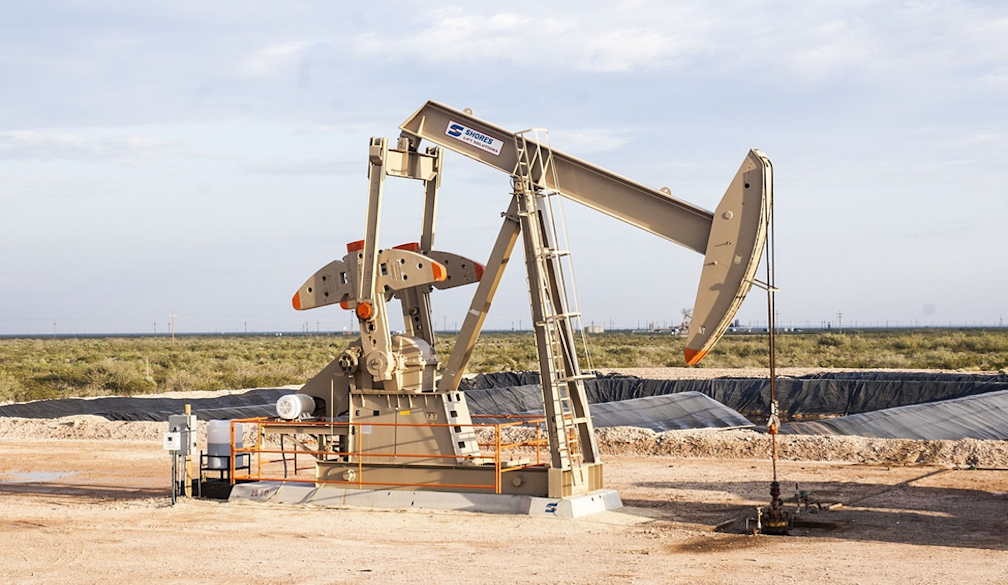Products Made from Petroleum

From transportation to healthcare, petroleum has become an integral part of our everyday lives. This fossil fuel serves as the foundation for a wide range of products that surround us, offering convenience, innovation, and functionality. In this article, we will explore the diverse world of products made from petroleum.
Common Uses of Petroleum Products
Petroleum's most familiar use is in the production of gasoline, which powers the majority of vehicles on our roads. However, petroleum's influence extends far beyond transportation. It plays a vital role in the creation of plastics, lubricants, and synthetic fibers. These materials are used in various industries, from construction to electronics.
Plastics, made from petroleum-based polymers, are incredibly versatile. They are found in everyday items such as packaging materials, household goods, and even medical equipment. Plastic's durability and malleability make it an essential component in our modern lives. It is used in everything from water bottles to car parts, revolutionizing the way we live and work.
Lubricants, another petroleum derivative, are crucial for the smooth operation of machinery. They reduce friction and wear, ensuring that engines, gears, and other mechanical components function efficiently. Lubricants are used in automobiles, industrial machinery, and even household appliances like refrigerators and washing machines.
Synthetic fibers, such as polyester and nylon, are derived from petroleum. These fibers are widely used in the textile industry, providing durability, comfort, and versatility to clothing and other fabric-based products. From athletic wear to home furnishings, synthetic fibers have become an integral part of our daily lives.
Petroleum also finds its way into various household goods, including cosmetics and detergents. Many beauty and personal care products, such as lotions, shampoos, and makeup, contain petroleum-based ingredients. These ingredients provide moisture, emulsification, and other benefits to enhance the effectiveness of these products. Similarly, petroleum-based surfactants are used in detergents, soaps, and cleaning agents to help remove dirt and stains.
In summary, petroleum-based products are ubiquitous in our modern society. From the packaging that protects our food to the clothing we wear, petroleum's influence is ever-present.
Environmental Impact of Petroleum Products
While petroleum-based products offer numerous benefits, it is essential to consider their environmental impact. The extraction, refining, and disposal of petroleum and its derivatives can have significant consequences for the planet.
One of the most notable environmental concerns is the emission of greenhouse gases during the burning of petroleum-based fuels. This contributes to climate change and air pollution, leading to adverse effects on human health and the ecosystem. Efforts are being made to reduce these emissions through the development of cleaner fuels and the promotion of alternative energy sources.
Another environmental issue associated with petroleum is the accumulation of plastic waste. Plastics are durable and resistant to degradation, leading to their persistence in the environment. Plastic pollution poses a threat to marine life, ecosystems, and even human health. Recycling and waste management initiatives are crucial for mitigating this problem.
Additionally, the extraction of petroleum can have detrimental effects on ecosystems. Oil spills, accidents, and leaks during drilling and transportation can contaminate water bodies, soil, and habitats. These incidents can harm wildlife and disrupt fragile ecosystems, requiring extensive cleanup efforts and long-term restoration.
To address these environmental concerns, there is a growing interest in sustainable alternatives to petroleum-based products. Renewable energy sources, bio-based materials, and biodegradable alternatives are being developed to reduce reliance on fossil fuels and minimize the environmental impact of our daily lives.
Different Types of Petroleum Products
Petroleum is a complex mixture of hydrocarbons, and its composition can vary depending on its source and refining process. This diversity gives rise to a wide range of petroleum products with distinct properties and applications.
One of the most familiar petroleum products is gasoline, which powers internal combustion engines in cars, motorcycles, and other vehicles. Gasoline is a volatile liquid that evaporates easily, making it suitable for combustion engines. Its energy content allows for efficient and reliable transportation.
Diesel fuel is another commonly used petroleum product, primarily used in diesel engines. It offers higher energy density than gasoline and is commonly used in heavy-duty vehicles, trucks, and ships. Diesel fuel is known for its efficiency and durability, making it a preferred choice for long-haul transportation.
Jet fuel, also known as aviation turbine fuel, is specifically designed for use in aircraft. It has stringent specifications to ensure optimal performance and safety. Jet fuel's high energy content and stability are crucial for powering jet engines and supporting the aviation industry.
Apart from transportation fuels, petroleum-derived products include various types of lubricants. These oils are designed to reduce friction, heat, and wear in mechanical systems. Lubricants can be specialized for specific applications, such as engine oil for automobiles, hydraulic oil for heavy machinery, or grease for bearings and other moving parts.
Petroleum also serves as the raw material for the production of petrochemicals. These chemicals are used in the manufacturing of plastics, synthetic fibers, and other materials. Petrochemicals provide the building blocks for countless products, from packaging materials to medical devices.
Manufacturing Process of Petroleum Products
The manufacturing process of petroleum products begins with the extraction of crude oil from underground reservoirs. This crude oil is then transported to refineries, where it undergoes a complex refining process to separate different hydrocarbon fractions.
At the refinery, crude oil is first heated and then sent to a distillation column. The column separates the oil into different fractions based on their boiling points. Lighter hydrocarbons, such as gasoline and jet fuel, have lower boiling points and are collected at the top of the column. Heavier fractions, like diesel fuel and lubricants, have higher boiling points and are collected at lower levels.
After distillation, the fractions undergo various treatment processes to remove impurities and improve their performance characteristics. These treatments may include hydrotreating, catalytic cracking, and reforming, among others. Each process aims to enhance the quality and properties of the petroleum products.
Once the desired characteristics are achieved, the refined products are then stored and distributed to various industries and consumers. They are carefully transported to ensure their quality and safety.
Health and Safety Considerations with Petroleum Products
While petroleum products offer numerous benefits, it is crucial to handle and use them with caution due to their potential health and safety risks.
Exposure to petroleum-based fuels and solvents can lead to health issues, including respiratory problems, skin irritation, and even organ damage. It is essential to follow proper safety protocols when handling these substances, such as using protective equipment and ensuring adequate ventilation.
Similarly, exposure to certain petroleum-based chemicals used in the manufacturing of products can pose health risks. Occupational safety measures and adherence to regulations are vital in industries where these chemicals are handled or produced.
In addition to health concerns, the storage and transportation of petroleum products require careful consideration to prevent accidents and spills. Proper containment, maintenance, and emergency response plans are essential to minimize environmental damage and ensure the safety of workers and communities.
The responsible use and disposal of petroleum products are crucial for minimizing their impact on health and the environment. Regulatory bodies and industry standards play a vital role in enforcing safety measures and promoting best practices throughout the lifecycle of these products.
Alternatives to Petroleum Products
Recognizing the need for sustainable alternatives, researchers and innovators are actively exploring alternative materials and energy sources to reduce reliance on petroleum products.
One area of focus is the development of bio-based materials that can replace petroleum-derived plastics and fibers. These materials are derived from renewable sources such as plant-based feedstocks, reducing their carbon footprint and environmental impact. Bio-based plastics, for example, can be used in packaging, consumer goods, and even automotive components.
Renewable energy sources, such as solar and wind power, are being increasingly utilized as alternatives to fossil fuels. Electric vehicles are becoming more prevalent, reducing the reliance on gasoline and diesel for transportation. These developments contribute to a cleaner and more sustainable future.
Alongside bio-based materials and renewable energy, the concept of a circular economy is gaining traction. This approach focuses on minimizing waste and maximizing resource efficiency by recycling and reusing materials. It aims to reduce the demand for virgin petroleum products and promote the sustainable use of existing resources.
Economic Impact of Petroleum Products
The petroleum industry has a significant economic impact at both the global and local levels. As a valuable commodity, petroleum and its derivatives contribute to economic growth, job creation, and government revenues.
Oil-producing countries heavily rely on petroleum exports to drive their economies. The revenue generated from oil exports can support infrastructure development, public services, and social programs. Additionally, the industry creates employment opportunities across various sectors, from exploration and production to refining and distribution.
Clicking here, the demand for petroleum products also drives economic activity in industries that rely on these materials. The automotive, manufacturing, and construction sectors, among others, benefit from the availability of reliable and affordable petroleum-based products. These industries contribute to GDP growth and provide employment opportunities.
However, the petroleum industry is subject to market fluctuations and geopolitical factors that can impact global oil prices. Shocks to the oil market can have ripple effects on economies worldwide, affecting consumer spending, inflation, and investment decisions. It is crucial for countries and industries to diversify their energy sources and reduce their dependence on petroleum to mitigate such risks.
Future Trends in Petroleum Product Development
As the world continues to evolve, so does the development of petroleum-based products. Innovations and advancements in technology are driving the industry toward more sustainable and environmentally friendly solutions.
One area of focus is the development of cleaner fuels. Efforts are being made to reduce the carbon footprint of petroleum-based fuels by incorporating biofuels, hydrogen, and other renewable energy sources. These developments aim to reduce greenhouse gas emissions and promote a more sustainable transportation sector.
Another trend is the advancement of bio-based and biodegradable materials. Researchers are exploring new feedstocks and manufacturing processes to produce plastics and fibers that have minimal environmental impact. These materials offer the potential for a more circular and sustainable economy.
Additionally, the integration of digital technologies in the petroleum industry is transforming operations and increasing efficiency. Automation, data analytics, and artificial intelligence are revolutionizing exploration, production, and refining processes. These technologies enable better decision-making, optimization, and cost reduction.
Sustainable practices, innovation, and collaboration will continue to shape the future of petroleum product development. The industry's response to environmental concerns and the evolving needs of consumers will determine its long-term viability and relevance.
Conclusion
Petroleum-based products have become an integral part of our daily lives, offering convenience, innovation, and functionality. From transportation fuels to plastics, lubricants, and synthetic fibers, petroleum's influence is vast and varied.
While these products have undeniable benefits, it is essential to consider their environmental impact. Efforts are being made to reduce emissions, manage plastic waste, and develop sustainable alternatives. The responsible use, disposal, and innovation surrounding petroleum products are crucial for a more sustainable future.
As we look ahead, the future of petroleum product development lies in cleaner fuels, bio-based materials, digital integration, and sustainable practices. The industry's ability to adapt and address environmental concerns will determine its continued relevance and success in a rapidly changing world.
Whether we realize it or not, petroleum is deeply interconnected with our lives. It is a resource that has shaped our society and continues to play a significant role in our journey toward a more sustainable future.





